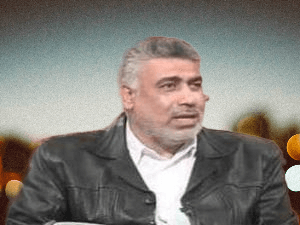
生い立ちと学問の旅:
1868年、イランのウルミアに生まれたベンジャミン・ケルダニは、後にイスラム教に帰依し、アブドゥル・アハド・ダウドとして知られるようになる。1886年から1889年にかけては、カンタベリー大主教のキリスト教ネストリウス派伝道所で教師として働いた。その後、ローマに派遣され、プロパガンダ・カレッジで哲学と神学の正式な訓練を受けた。1895年、司祭に叙階され、専門誌に宗教記事を執筆するようになる。
変革の始まり:
ローマから戻ったケルダニはイスタンブールに立ち寄り、東方教会に関する記事を英仏の新聞に寄稿した。故郷に戻り、フランスのラザリスト宣教会に加わり、シリア語で最初の定期刊行物を発行した。その後、フランスで開催された聖体会議の東方カトリック代表として任命される。故郷に戻ると、フリースクールを開き、教会内での福音的活動を続けた。
疑念と矛盾:
教会の教えと個人的な信条との間に矛盾があることに気づいたとき、ケルダニの心に疑念が忍び寄り始めた。彼は、神と被造物との間に執り成しを求める教会の要求と、執り成し手への絶対的な依存を受け入れるのに苦労した。アブドゥル・アハド・ダウドはこう言う。"教会は私に、神と被造物との間の執り成しを信じ、修道士が絶対的な執り成し手であると信じるよう求めましたが、私は受け入れることができませんでした"。
真実を求めて:
ケルダニは1ヶ月間自宅に閉じこもり、聖典を古代語で読み直し、深く研究した。真理を求めて、彼はコーランと一般に信じられている聖書を探求し始め、コーランがキリストの磔刑を否定しているのに対し、聖書はそれを肯定していることを発見した。調査・研究の結果、キリストの殺害と磔刑、それに続く復活の物語は神話的な物語であると確信し、確信するようになりました" とダウドは説明する。
イスラム学者との会合
探索の間、ケルダニは何人かのイスラム学者と会い、何度も議論を交わし、知的な対立をした。これらの会合の後、彼はイスラム教の真理を確信し、この宗教に対する心の平安を感じ始めた。何人かのイスラム学者と会い、彼らと何度も対立した後、私はイスラム教を確信し、それを受け入れた "と彼は回想している。
イスラムを受け入れる
コーランと聖典を徹底的に学んだ後、ベンジャミン・ケルダニはイスタンブールでイスラム教を受け入れ、"アブドゥル・アハド・ダウド "と名乗った。ダウドは、イスラム教への改宗は神の導きによるものだと強調した。私のイスラームへの導きは、全能の神の配慮と導きによるものです。神の導きがなければ、すべての読書や研究は無益です」。
イスラム後の人生
改宗後、アブドゥル・アハド・ダウードはイスラム教を擁護し、宗教的真理を科学的かつ論理的に解明する著書を数冊執筆した。これらの著書の中には、『聖書の中のムハンマド』や『福音と十字架』という驚くべき著作がある。ダウドは、"私が神とその崇高な預言者(かれに平安あれ)の唯一性を信じた瞬間から、模範的で信仰深い行いへの変容が始まった "と述べている。
ファイナル・ビジョン
アブドゥル・アハド・ダウドは、「聖書の意味と精神を理解する唯一の方法は、イスラームの視点から研究することだと確信しています」と断言する。彼は、イスラム教が受け入れている一神教の信条こそ、審判の日まで神を信じるすべての信者が信じるべき真の教義であると信じている。
これらの詳細によって、熱狂的な司祭から献身的なイスラムの伝道師となったベンジャミン・ケルダニの旅が展開され、イスラムの力と真理を求める心を惹きつける能力が浮き彫りにされる。






